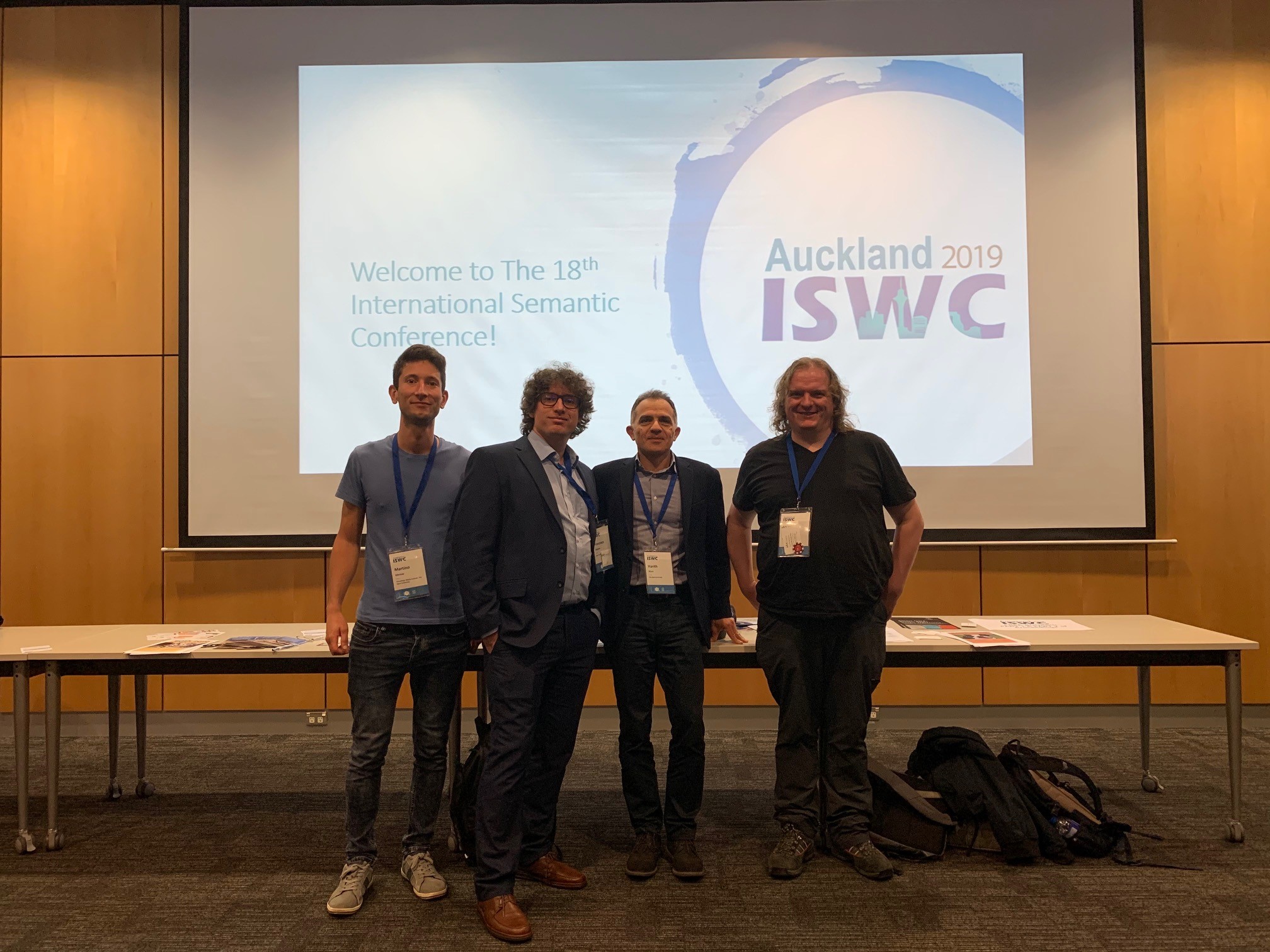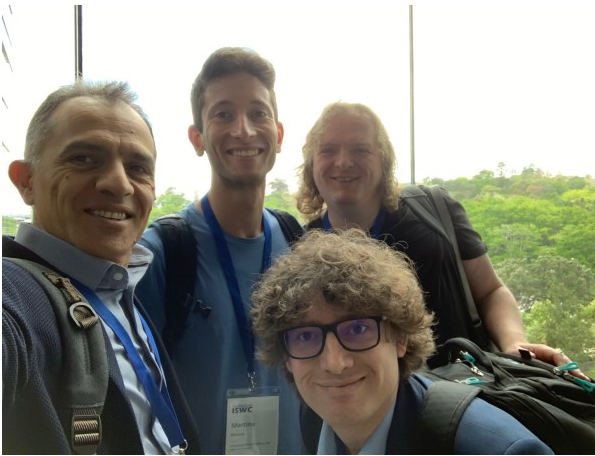Every year the International Semantic Web Conference (ISWC) is the main destination for many researchers in the Semantic Web community. The 18th edition of the ISWC was held last week in Auckland, New Zealand, and hosted around 500 researchers coming from all around the world. ISWC is of high importance to KMi since it relates to much of the core research and projects in the lab. Many researchers and academics in KMi have been on the organisation committees of ISWC in various years, and their work contributed strongly and regularly to the programme of the conference.
KMi members, Harith Alani, Allan Third, Francesco Osborne, and Martino Mensio took part in the conference at Auckland this year, where they presented papers, posters, and demos, and were involved in various other activities, such as tutorials, journal editorial meetings, and PhD mentoring.
In the pre-conference sessions, Allan Third ran a well-attended all-day tutorial on Blockchains and the Semantic Web with collaborators from Southampton and Zurich. He also presented “LinkChains: Trusted Personal Linked Data”, about our Linked Data verification platform and the MerQL model for proving data integrity at the individual triple level, at the Blockchain-enabled Semantic Web workshop.
In the In-Use track, Francesco Osborne presented the paper “Improving Editorial Workflow and Metadata Quality at Springer Nature”, about our long-standing collaboration with the world’s largest academic book publisher. This paper was also nominated for best In-Use paper.
In the Demo track, Martino Mensio and Harith Alani presented “MisinfoMe: Who’s Interacting with Misinformation?” which was developed in the Co-Inform project, to track people’s interactions with misinformation on Twitter. In the same track, Francesco Osborne presented “Smart Topics Miner 2: Improving Proceedings Retrievability at Springer Nature”, about the system developed for automatically annotating research publications at Springer Nature. In the Poster track, Francesco Osborne and Allan Third also presented “Integrating Knowledge Graphs for Comparing the Scientific Output of Academia and Industry”, regarding a new knowledge base for exploring the industrial contributions to research and “Parsing Natural Language Sentences into Robot Actions” which described a Natural Language Processing engine that allows the NAO humanoid robot to execute natural language actions spoken by the user.
Overall, the Scholarly Knowledge Mining Team was nominated for four awards: best In-Use paper, best student In-Use paper, best Poster, and best Demo.
The next edition of ISWC will be held in Athens, Greece. Harith Alani will be on the organisation committee of ISWC 2020, co-chairing the Doctoral Consortium track. We all look forward to meeting again with this large and highly active community next year.



